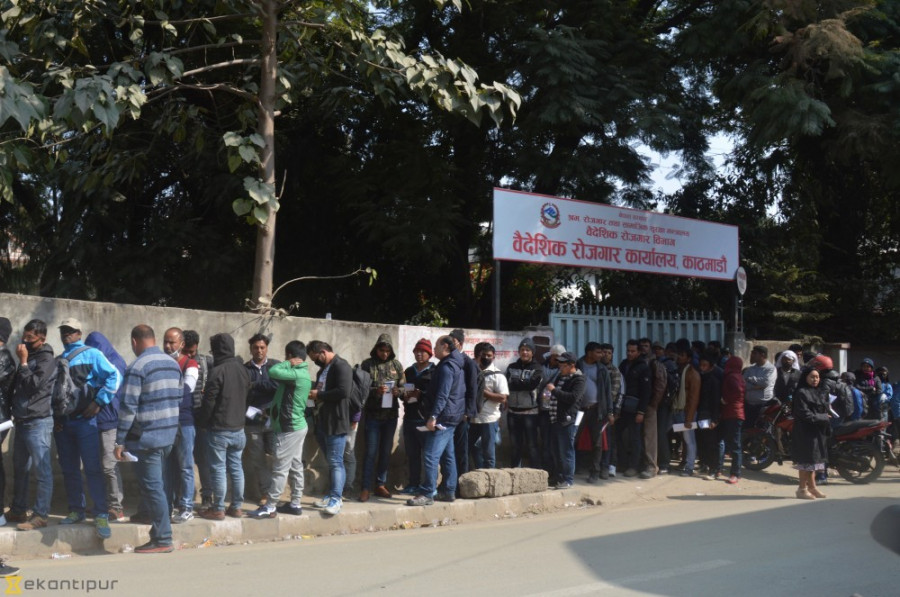Valley
Recruiting agencies must send workers within 90 days of getting labour permit
Recruiting agencies engaged in sending Nepali migrant workers for foreign firms will have to send them within 90 days from the date the aspirant workers get the final labour permit from the Department of Foreign Employment.
Chandan Kumar Mandal
Recruiting agencies engaged in sending Nepali migrant workers for foreign firms will have to send them within 90 days from the date the aspirant workers get the final labour permit from the Department of Foreign Employment.
In the past, there were many instances when recruiting agencies would leave migrant workers stranded for months after they would not arrange flight tickets or delay their departure to destination countries on various pretexts.
According to Dilip Kumar Chapagain, director general with the Department of Foreign Employment, the recruiting agencies not arranging flights within the stipulated 90 days of timeframe would be liable to punishment.
“If recruiting agencies do not send workers to destination countries, that shows their ill intention of cheating the workers. If they fail to do abide by the 90-day rule, they will be penalised and made to pay compensation as well,” Chapagain told the Post.
As per the new provision that has come into effect after it was published in the Nepal Gazette recently following the government making amendment in the existing Foreign Employment Act (2007) as part of the Some Nepal Act Amendments, the recruiting agencies will have to also pay compensation to workers for not failing to ensure them jobs within the timeframe.
Failing to do so would make the workers entitled to compensation of the entire amount paid by them to the recruiting agencies added with 25 percent annual interest of the total amount within 30 days.
Among other significant changes in the act, aimed at giving reprieve to those migrant workers who often fall victims to foreign employment fraud incidents, can now file a case at the District Administration Office in their respective districts.
Earlier, victims would have to travel to Kathmandu for filing their complaints at the Department of Foreign Employment which has long been struggling to deal with piles of complaints related to anomalies in the foreign employment sector.
“Now they don’t have to visit the capital for filing complaints. They can approach the local authority which would be effective in tracing the local sub-agents and giving justice to the victim,” added Chapagain.
The district level authority, after an inquiry by the Chief District Officer, can resolve the matter between both parties which should be further communicated to the department. If the dispute cannot be settled at the District Administration Office, it should be forwarded to the department, according to Chapagain.
Likewise, complaints can be registered using post services or online medium which would be accepted by the department for further investigation.
With the new amendments in the act, Nepali migrant workers can also get re-entry labour permit twice from Nepali missions abroad.
“A worker will not need to return back to the country for getting the re-entry permit. If they can arrange all the documents, they can get it from our missions in destination countries,” Chapagain said.




 10.66°C Kathmandu
10.66°C Kathmandu













